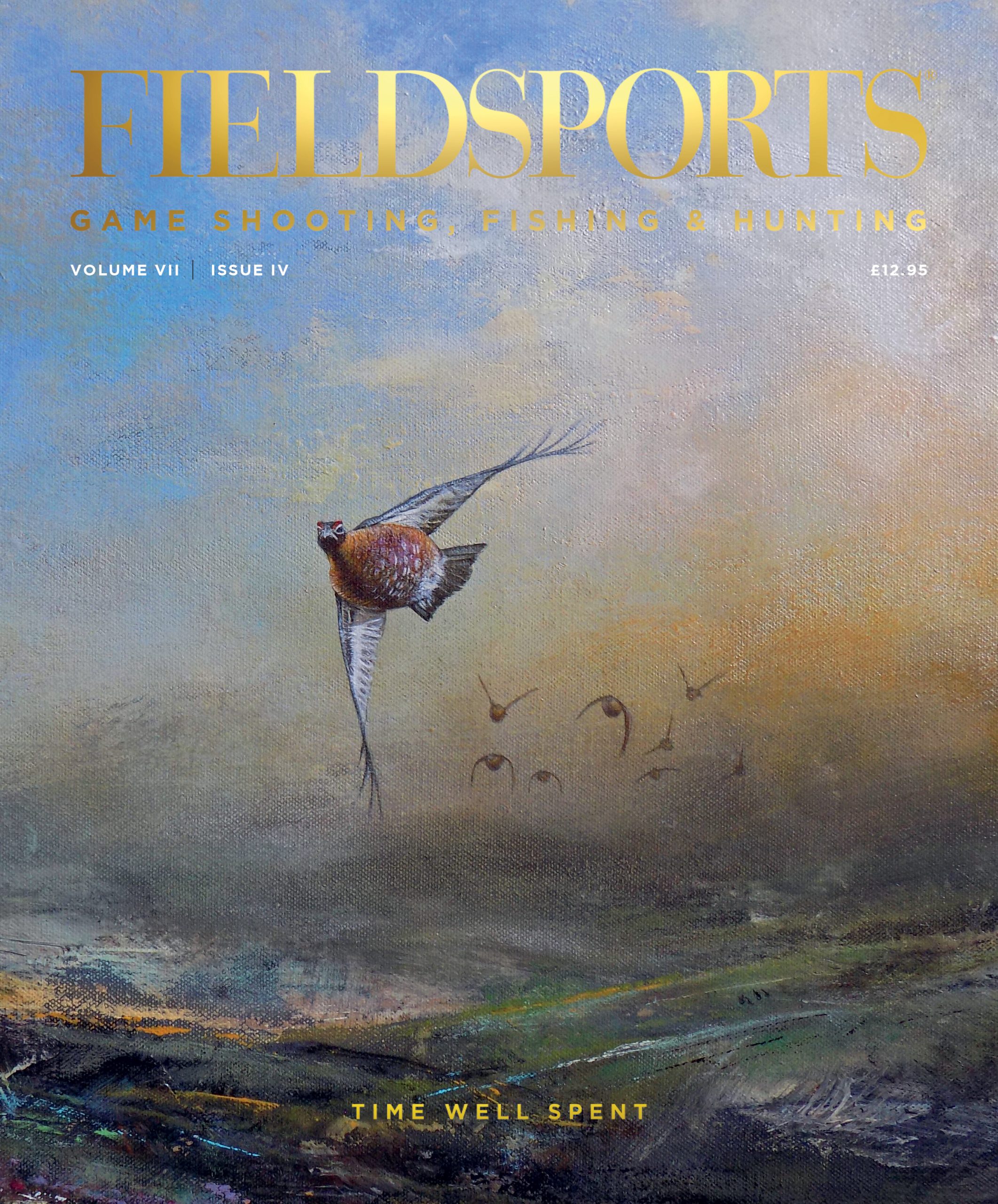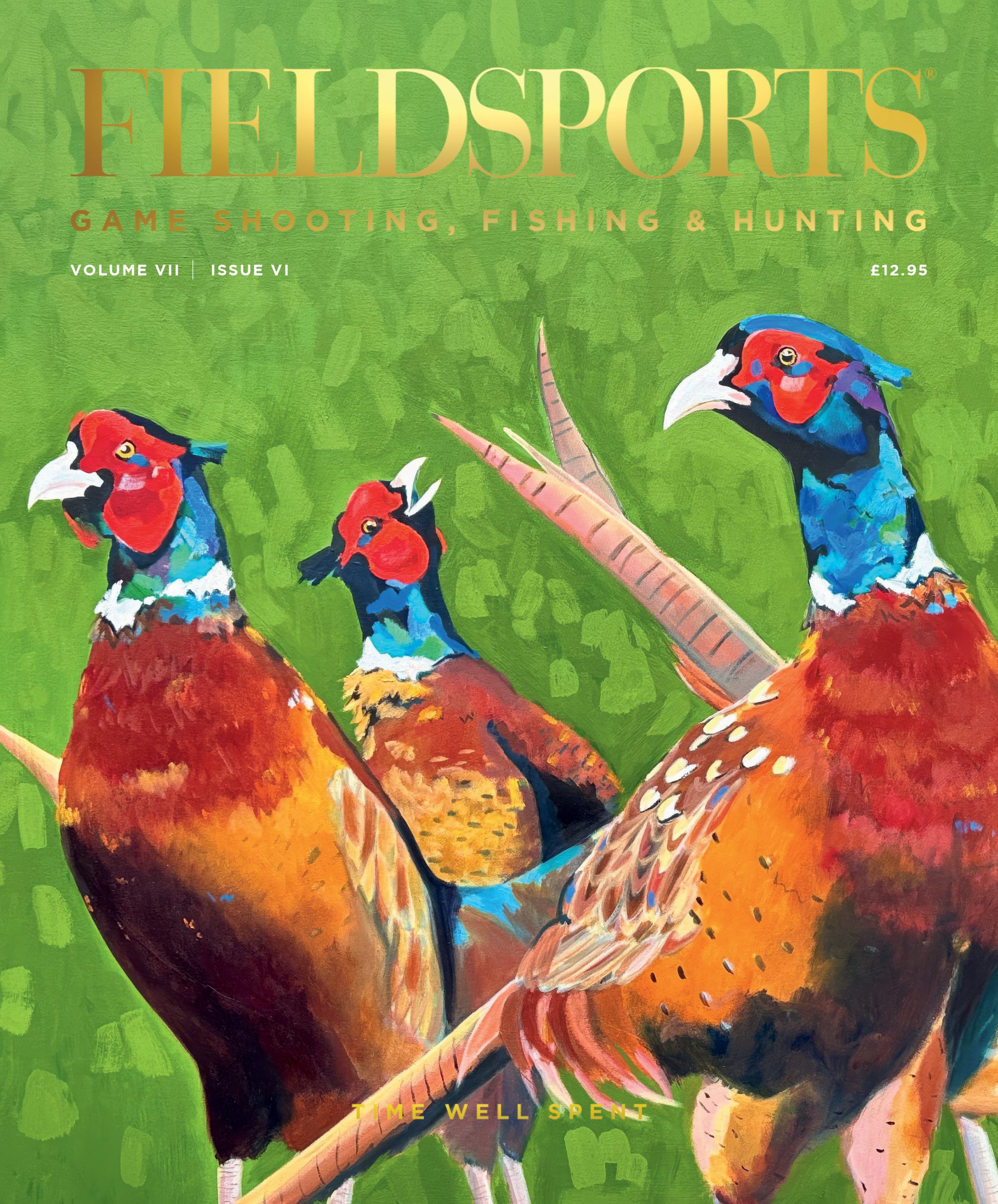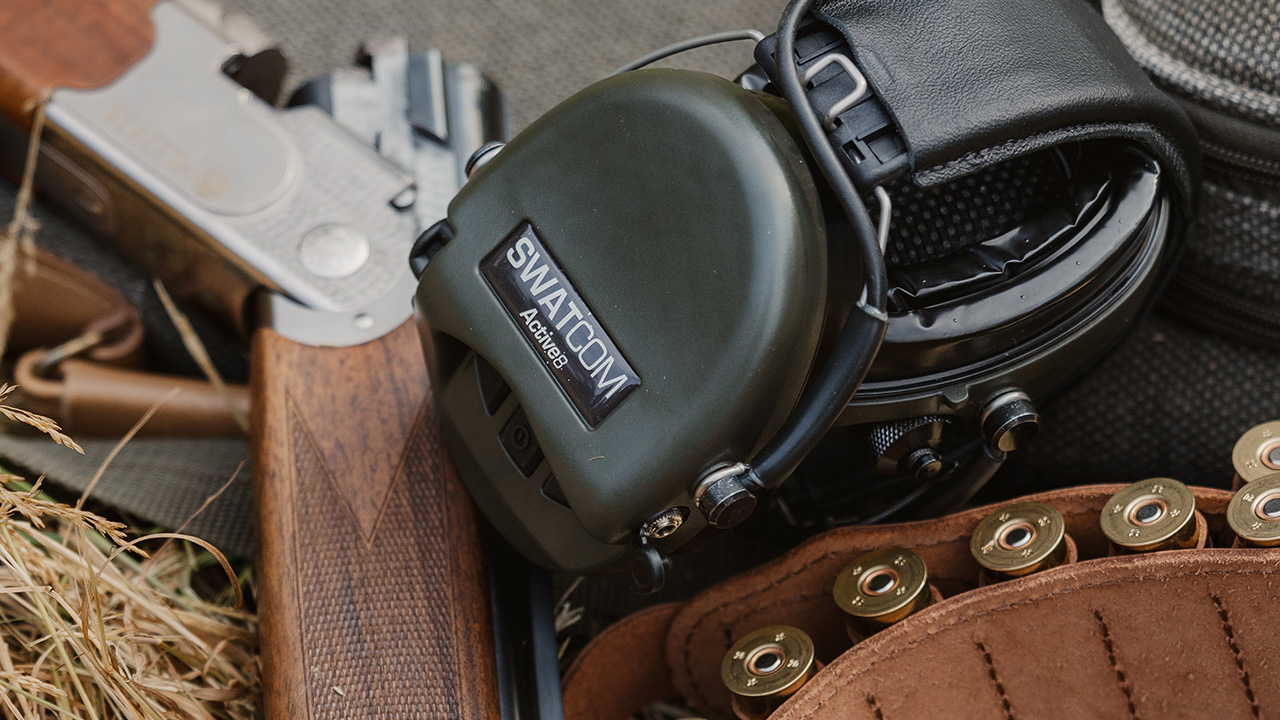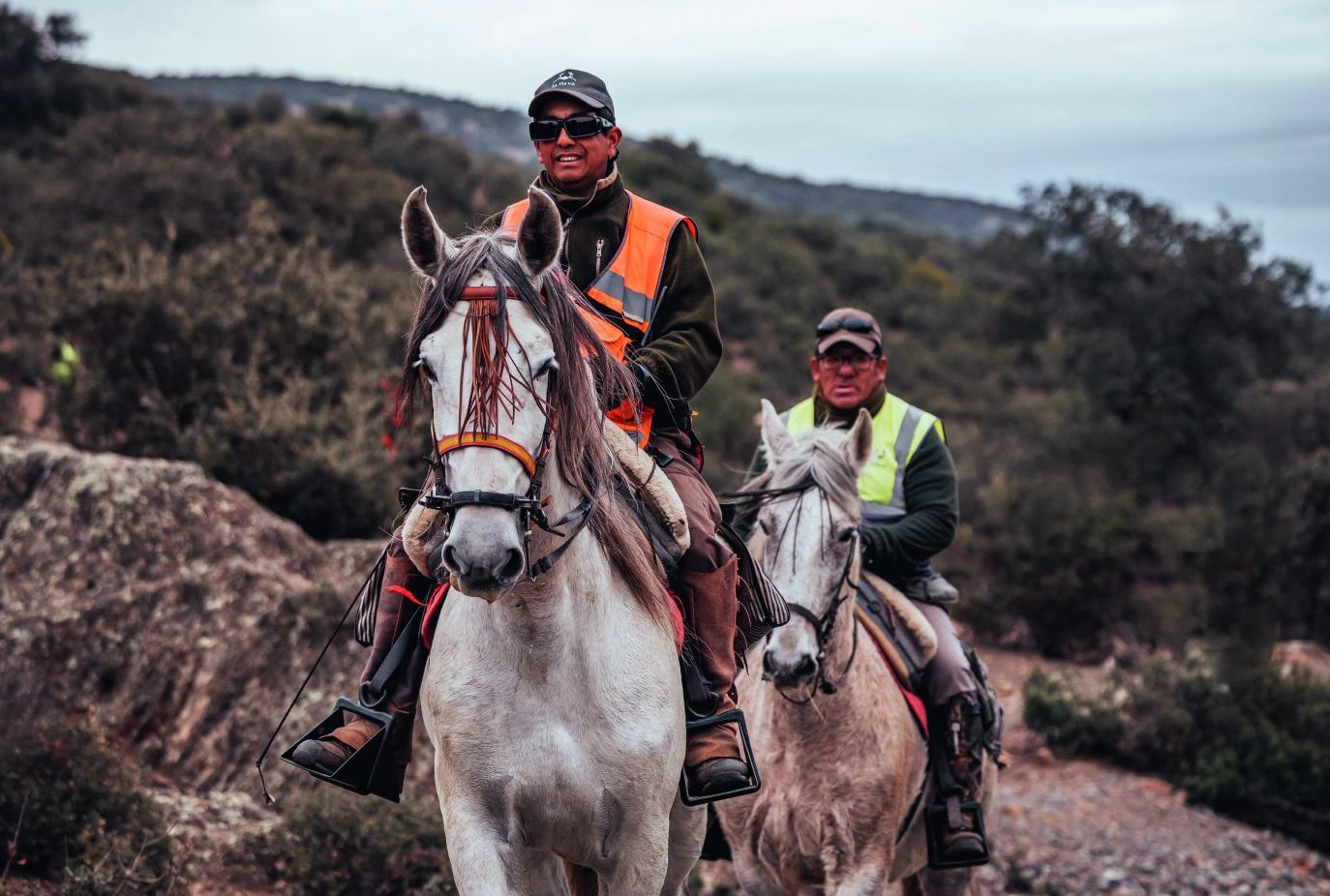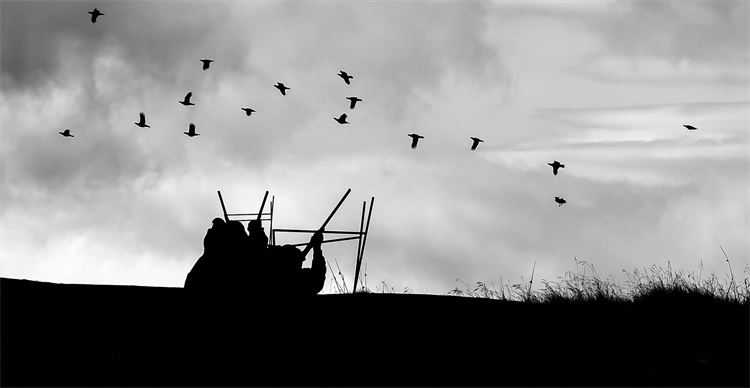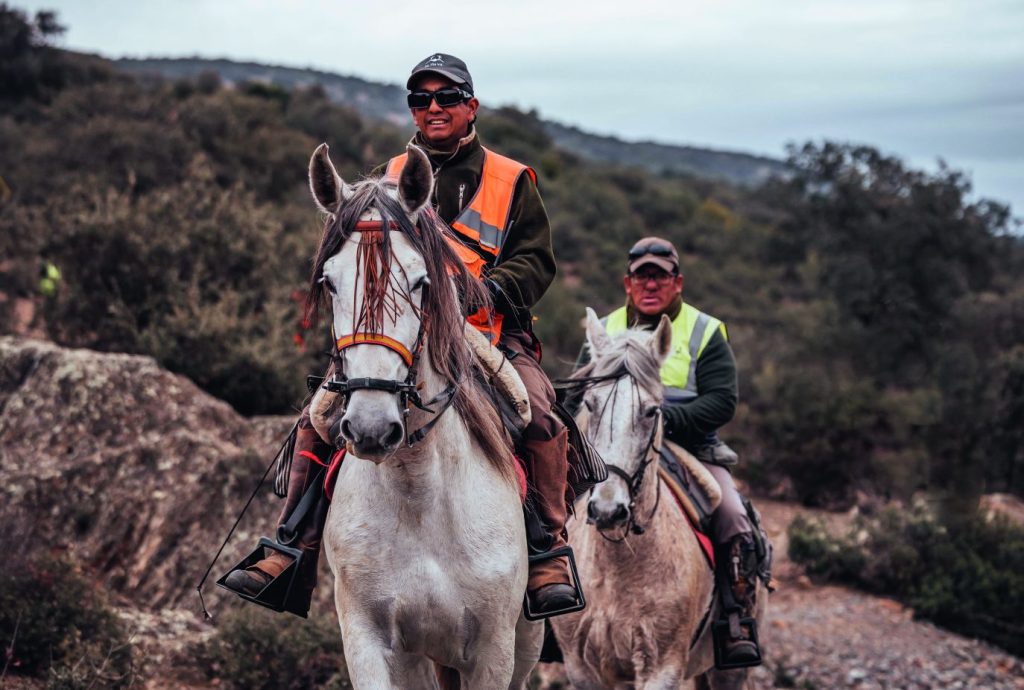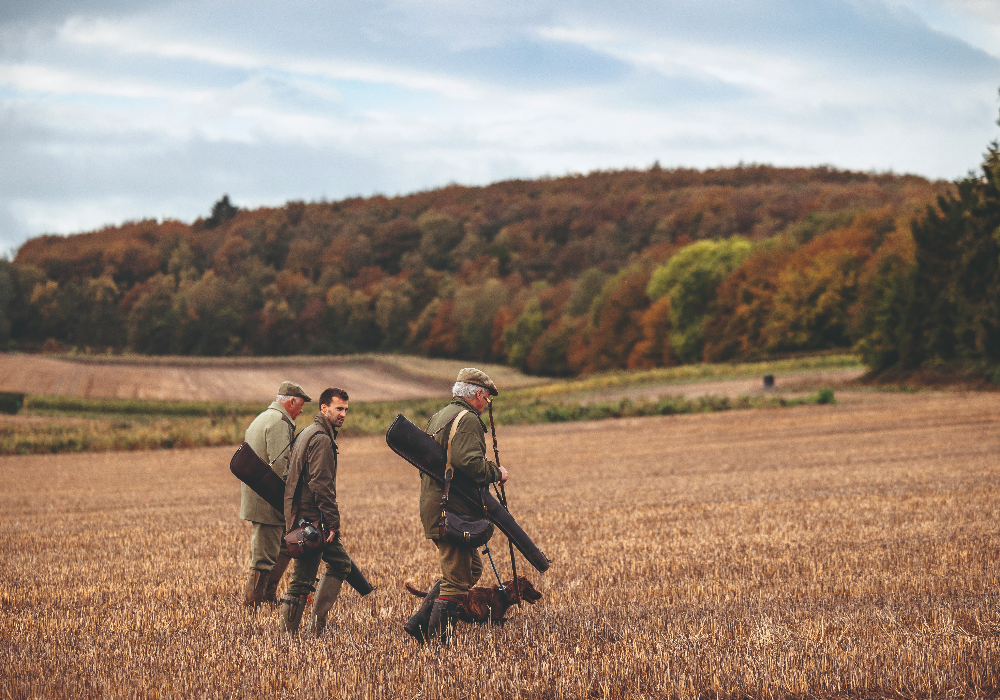Mental health in shooting
Julia Stoddart explains how country sports can play a big part in improving one’s mental health.
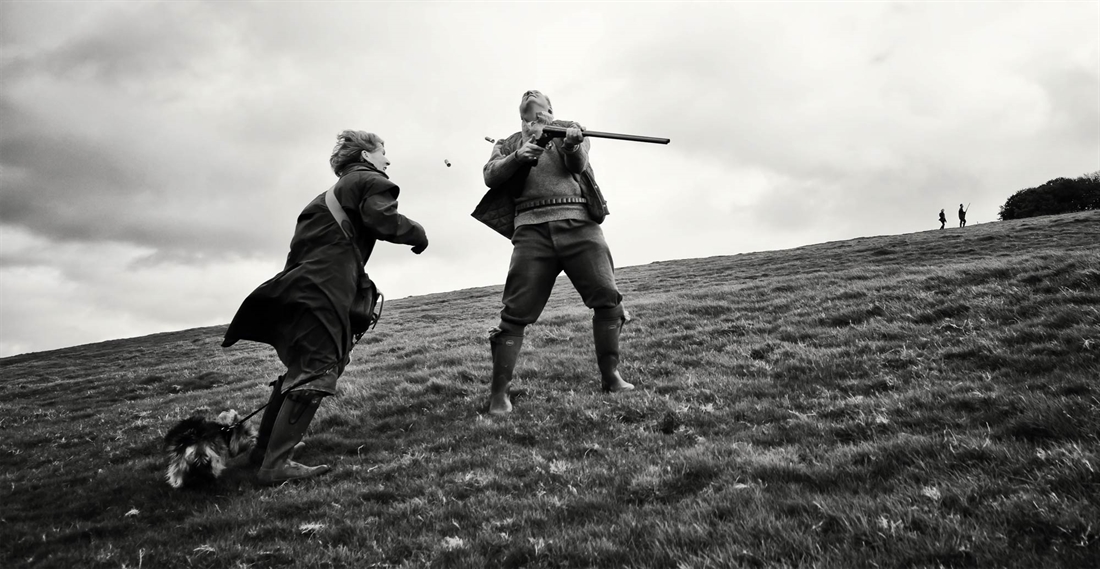
Who has not read John Macnab, the enduring Buchan novel from Britain’s interwar glory days? It is, undoubtedly, a light-hearted classic of British literature, and one that I sit down to read at least once a year when I begin to feel the fatigue generated – inevitably – by the relentless, unbroken pace of fieldsports advocacy at the political coalface.
A good-humoured gallop from the smoke of London to high Scottish crags and back again, the book has a reputation amongst literary critics for being the most trivial of Buchan’s work. But its pages deal with a theme that is as relevant today as it was in the immediate aftermath of the First World War: mental health. In the opening chapter, one of the key protagonists is in bad shape: “He was so completely fatigued with life that he neglected to be cautious at crossings, as was his habit, and was all but slain by a motor-omnibus. Everything seemed weary and over-familiar… Long ago, he reflected with disgust, there had been a time when he had enjoyed it all.”
Without wishing to spoil the plot for any readers who have yet to add Macnab to their library, the closing chapters find our characters firmly reunited with their joie de vivre, and it is no coincidence that the catalyst for recovery is time immersed in fieldsports.
Of course, it would be disingenuous of me to suggest that mental health conditions, whether acute or chronic, are so easily cured. Here in the SACS office, we see the impact of mental health problems at first-hand through our extensive work helping members navigate firearms licensing difficulties. Over the years, the full spectrum of conditions has crossed our desks: from mild anxiety occurring inconveniently at certificate renewal time, through to ongoing but well-managed clinical depression and, devastatingly, a number of member suicides by firearm, we have seen it all.
One of the reasons for our wide experience of dealing with mental health challenges is that such conditions are extremely widespread. According to mental health charity Mind, in any given week approximately 1 in 6 people report experiencing a common mental health concern such as anxiety or depression. Given the limitations of statistical recording and reporting, experts suggest that the real figure is likely to be higher than this; even if you are not dealing personally with a mental health issue, it is almost certain that you know someone who is.
The public dialogue on mental health and shooting sports is usually dominated by the problems. Trawl at your peril the various online forums and talking shops, where you will see allegations of incompetence by health professionals and police heavy-handedness. At game fairs and on other occasions, I have heard directly that people are frightened to seek help for persistent low mood or eating disorders, due to the belief that as soon as they have left their GP’s surgery the police will be waiting on their doorstep ready to remove guns and revoke certificates. Whatever the reality, this is the perception: and perception is key when people make decisions about their lives.
It is true that, especially in the past, some elements of the NHS and the Police have not been helpful allies for members of the fieldsports community experiencing mental health challenges. But, thanks to the proactive work of professional advocates, the situation has changed and we now see both doctors and police officers being understanding of a very important fact: participating in fieldsports helps maintain and improve good mental health.
Fraser Lamb is a retired Chief Inspector whose last role was Head of Firearms Licensing for Police Scotland; he is also a life-long shooter. Fraser now works as an advisor for SACS, and offered his experienced perspective: “I was the operational Head of Firearms Licensing in Police Scotland for four years, responsible for the largest firearms licensing department in the UK with over 51,000 certificate holders. Within that population, I learned of people who suffered from significant mental health challenges. If the risk was such that there was a danger to the safety of the public, guns were removed. But let’s be clear about something: one of the statutory duties – a legal requirement – of a Constable is to preserve life. That fact is often lost online, where people who don’t have to carry that weight on their shoulders let rip on a keyboard.”
Fraser clarifies, “If there is a risk to either a certificate holder or someone else [as a result of the behaviour of the certificate holder], then guns will be removed. However, the police regularly do their best to help put their foot on the ball and to manage the risk by looking at options for the affected certificate holder, such as remote storage or whatever other arrangements can be made to allow a person to continue shooting – which could be their hobby or their work – while they recover or proactively address their long-term mental health needs.”
Working with key stakeholders such as the Gamekeepers Welfare Trust and the main shooting membership organisations across the UK, Fraser explains how the government, mental health charities and other relevant bodies have been collaborating to make a positive change to our community’s lives: “Significant work is ongoing to provide mature and helpful advice to those involved in shooting who have guns and who are concerned about either their own mental health challenges or those of a family member, or friend.”
As Fieldsports readers will well understand, shooting is as much a way of life as anything else, and the thought of no longer being able to go to the Sunday clay shoot, to miss out on the driven season or lose your deer lease, is soul-destroying. This is particularly relevant when an individual is already struggling: shooting can be a literal lifeline, and a social necessity. As Fraser says, “It is a concern to us all that people who currently have lawful access to guns might avoid seeking help for their mental health issues because they are fearful of their guns being removed. I recently met a group of gamekeepers who voiced that view, and I was at pains to reinforce the position that addressing concerns does not lead automatically to the removal of guns.”
This is hugely encouraging news to hear, and follows the recent trend towards mental health openness and transparency in the media; indeed, the move towards normalisation of a very normal part of life. Remember Prince Harry speaking recently about the impact of his late mother’s death? Combine the majority of certificate holders being male with the statistical reality that men are less likely to seek treatment and more likely to take their own life, then it is high time our society, including our health and Police services, treated mental health like any other health condition: with empathy and kindness. Fraser notes: “Think about this: If a person’s health deteriorates to such an extent that a life is ended, who are the losers? The family, friends and colleagues who are left behind reflecting on why it happened and what they could have done differently.”
Signing off on his subject of expertise, Fraser told me, “Let’s face it, sometimes life is difficult and it’s not always plain sailing; a shared conversation can allay fears and provide advice on what to do next. There is always help available. The shooting organisations can signpost where to find it. It’s vital to understand that it really is ‘ok not to be ok’… and it’s good to talk.”
By listening to certificate holders’ concerns, working directly with police forces and GPs, and advocating for the importance of social activities such as shooting in maintaining people’s quality of life, a mental health diagnosis has lost its sense of finality for a fieldsports participant. John Buchan described the pursuit of quarry as “a perpetual series of occasions for hope.” And what is life, without hope?
Related Articles
Get the latest news delivered direct to your door
Subscribe to Fieldsports Journal
Elevate your experience in the field with a subscription to Fieldsports Journal, the premium publication for passionate country sports enthusiasts. This bi-monthly journal delivers unparalleled coverage of game shooting, fishing and big game across the UK and beyond.
Each issue offers a stunning collection of in-depth features, expert opinions and world-class photography, all presented in a timeless yet contemporary design.
Save 10% on shop price when you subscribe, with a choice of packages that work for you. Choose from Print & Digital or Digital only with each journal delivered directly to your door or via the app every other month, plus access to past issues with the digital back issue library.
